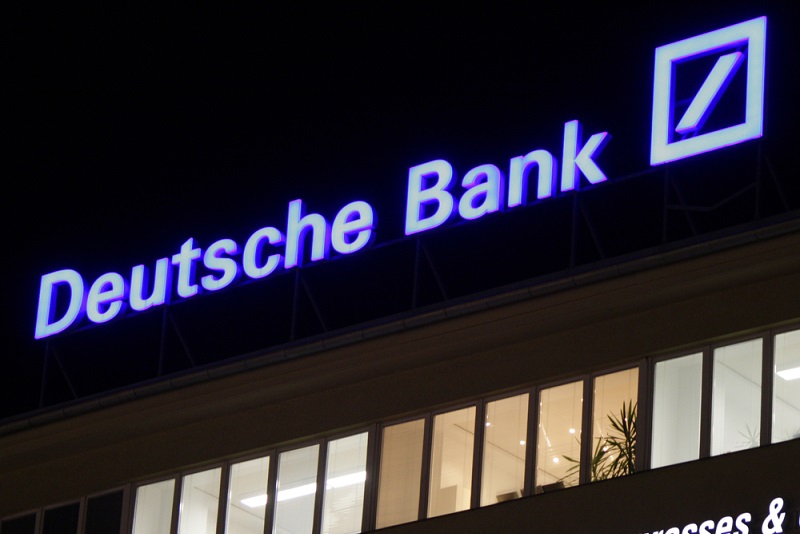BROWSE BY TOPIC
- Bad Brokers
- Compliance Concepts
- Investor Protection
- Investments - Unsuitable
- Investments - Strategies
- Investments - Private
- Features/Scandals
- Companies
- Technology/Internet
- Rules & Regulations
- Crimes
- Investments
- Bad Advisors
- Boiler Rooms
- Hirings/Transitions
- Terminations/Cost Cutting
- Regulators
- Wall Street News
- General News
- Donald Trump & Co.
- Lawsuits/Arbitrations
- Regulatory Sanctions
- Big Banks
- People
TRENDING TAGS
Stories of Interest
- Sarah ten Siethoff is New Associate Director of SEC Investment Management Rulemaking Office
- Catherine Keating Appointed CEO of BNY Mellon Wealth Management
- Credit Suisse to Pay $47Mn to Resolve DOJ Asia Probe
- SEC Chair Clayton Goes 'Hat in Hand' Before Congress on 2019 Budget Request
- SEC's Opening Remarks to the Elder Justice Coordinating Council
- Massachusetts Jury Convicts CA Attorney of Securities Fraud
- Deutsche Bank Says 3 Senior Investment Bankers to Leave Firm
- World’s Biggest Hedge Fund Reportedly ‘Bearish On Financial Assets’
- SEC Fines Constant Contact, Popular Email Marketer, for Overstating Subscriber Numbers
- SocGen Agrees to Pay $1.3 Billion to End Libya, Libor Probes
- Cryptocurrency Exchange Bitfinex Briefly Halts Trading After Cyber Attack
- SEC Names Valerie Szczepanik Senior Advisor for Digital Assets and Innovation
- SEC Modernizes Delivery of Fund Reports, Seeks Public Feedback on Improving Fund Disclosure
- NYSE Says SEC Plan to Limit Exchange Rebates Would Hurt Investors
- Deutsche Bank faces another challenge with Fed stress test
- Former JPMorgan Broker Files racial discrimination suit against company
- $3.3Mn Winning Bid for Lunch with Warren Buffett
- Julie Erhardt is SEC's New Acting Chief Risk Officer
- Chyhe Becker is SEC's New Acting Chief Economist, Acting Director of Economic and Risk Analysis Division
- Getting a Handle on Virtual Currencies - FINRA
ABOUT FINANCIALISH
We seek to provide information, insights and direction that may enable the Financial Community to effectively and efficiently operate in a regulatory risk-free environment by curating content from all over the web.
Stay Informed with the latest fanancialish news.
SUBSCRIBE FOR
NEWSLETTERS & ALERTS
Deutsche Pays $629Mn to Settle NYS, U.K. Probes Into Illicit Russian Trades, AML Violations
Deutsche Bank agreed to pay a $425 million penalty to settle allegations by NY’s Department of Financial Services that DB employees used a “mirror-trading scheme” to help wealthy Russians move $10 billion out of that country from 2011 through 2014. In addition to the financial penalty, the bank will have to hire an independent monitor, its 6th in the U.S.
Tuesday Update: DB agreed to pay $204 million to settle with British regulators (the Financial Conduct Authority or FCA), relating to the illicit transactions. Both fines - by NYS and the U.K. - are the largest financial penalties levied by the respective regulators for AML violations.
DFS Superintendent Maria Vullo said in a written statement: “This Russian mirror-trading scheme occurred while the bank was on clear notice of serious and widespread compliance issues dating back a decade. The offsetting trades here lacked economic purpose and could have been used to facilitate money laundering or enable other illicit conduct, and today’s action sends a clear message that DFS will not tolerate such conduct.”
The New York regulator found that a close relative of a Deutsche Bank supervisor in Moscow received bribes worth a quarter million dollars so that the supervisor would clear the trades.
The bank is also expected to reach a similar agreement as soon as Monday evening with the U.K.’s Financial Conduct Authority that will include an additional penalty of several hundred million dollars, a person familiar with the matter said.
Meanwhile, federal prosecutors are still pursuing a criminal investigation into whether the German lender’s internal controls failed to pick up the scheme, people with knowledge of the matter have said.
MIRROR TRADES. Regulatory probes determined that mirror trades allowed Deutsche Bank counterparties in Russia to buy local blue-chip shares for rubles, while the same stocks would be sold in London for dollars. Although such trades are legal in some cases, U.S. Justice Department prosecutors were examining whether Deutsche Bank broke AML protocols by not properly vetting them. An internal audit by Deutsche Bank found a “systemic” failure in internal controls meant to prevent money laundering and financial crime.
Since its internal audit, Deutsche Bank has cut much of its operation in Russia. It has also reorganized its regulation, compliance and anti-financial-crime operations into a new structure with a global overseer.





